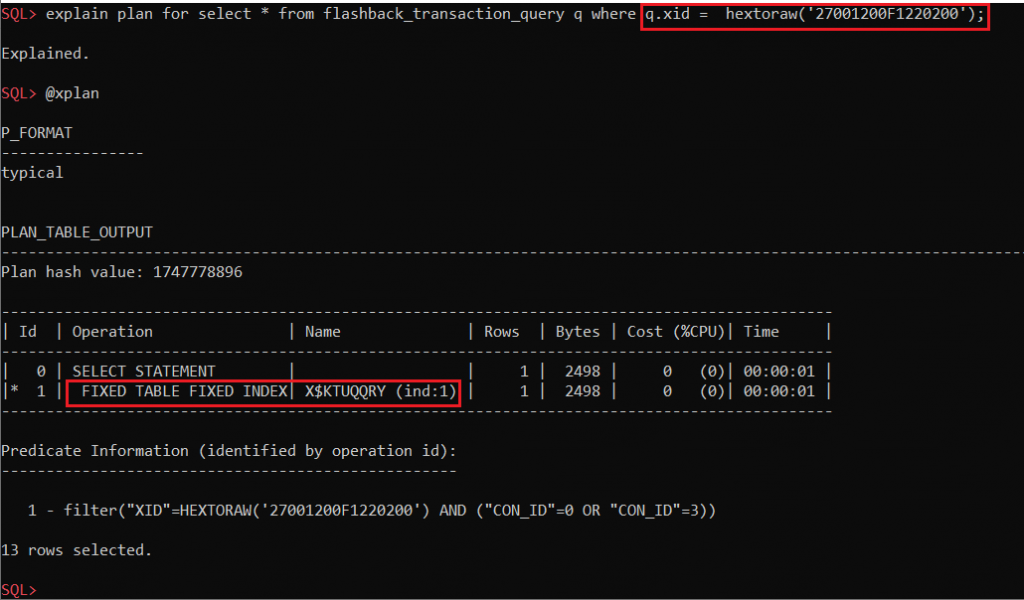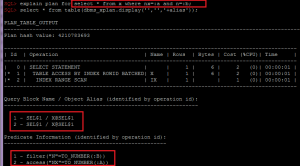I know this syntax for a long time, since when lateral() was not documented yet, but recently I found a bug: the following query successfully returns 1 row:
with a as (select level a from dual connect by level<10)
,b as (select 0 b from dual)
,c as (select 0 c from dual)
select
*
from a,
lateral(select * from b where a.a=b.b)(+) bb
--left outer join c on c.c=bb.b
where a=1;
A B
---------- ----------
1
But doesn’t if we uncomment “left join”:
with a as (select level a from dual connect by level<10)
,b as (select 0 b from dual)
,c as (select 0 c from dual)
select
*
from a,
lateral(select * from b where a.a=b.b)(+) bb
left outer join c on c.c=bb.b
where a=1;
no rows selected
And outer apply works fine:
with a as (select level a from dual connect by level<10)
,b as (select 0 b from dual)
,c as (select 0 c from dual)
select
*
from a
outer apply (select * from b where a.a=b.b) bb
left outer join c on c.c=bb.b
where a=1;
A B C
---------- ---------- ----------
1





